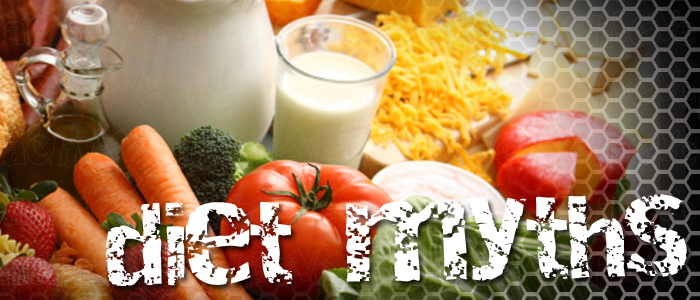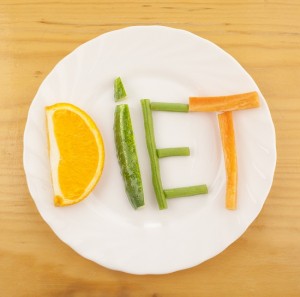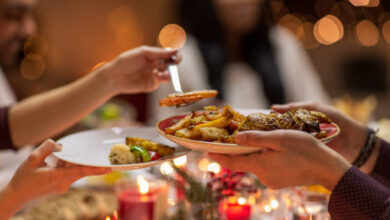Weight-Loss Myths

We all want to fit into our clothes without the bits and pieces of fats hanging out the edges. The most common resort is a diet because we believe they fix everything. Truth is not all diets work and not all people will get a successful result out of diets. Therefore, in order to make an informed decision when choosing a weight loss plan, here are facts to consider.
1.Fad diets work for permanent weight loss
Fad diets are not the best way to lose weight and keep it off. Fad diets often promise quick weight loss or tell you to cut certain foods out of your diet. You may lose weight at first on one of these diets. But, diets that strictly limit calories or food choices are hard to follow. Most people quickly tire of them and regain any lost weight.
2.Coffee Can Help You Lose Weight
While coffee may temporarily squelch your appetite, drinking a couple of cups a day won’t have enough of an effect to help you lose weight. Besides, pouring too much coffee into your system―drinking, say, four to seven cups a day―may lead to anxiety, sleeplessness, and an increase in heart rate and blood pressure.
3. High-protein/low-carbohydrate diets are a healthy way to lose weight.
High-protein/low-carbohydrate diets are often low in calories because food choices are strictly limited, so they may cause short-term weight loss. But a reduced-calorie eating plan that includes recommended amounts of carbohydrate, protein, and fat will also allow you to lose weight.
4. Milk Can Help You Lose Weight
Dairy doesn’t appear to have magic properties. A few studies from the mid-2000s concluded that dieters who consumed dairy lost more weight than dieters who did not. But other studies showed no effect, and still others showed a link between high milk consumption and eating more calories.
5. Certain foods, like grapefruit, celery, or cabbage soup, can burn fat and make you lose weight
No foods can burn fat. Some foods with caffeine may speed up your metabolism (the way your body uses energy, or calories) for a short time, but they do not cause weight loss. The best way to lose weight is to cut back on the number of calories you eat and be more physically active.
6. To Lose Weight, You Need to Cut Calories Drastically
Sure, if you subsist on 1,200 calories a day, you’ll take off weight, but it won’t be for long. Consider an analysis of 31 studies of long-term diets, where the diets averaged 1,200 calories a day. The report, published last April in American Psychologist, found that within four to five years, the majority of dieters in these studies regained the weight they had lost. “Psychologically, it’s difficult for people to adhere to strict diets over a long period because they feel deprived and hungry.
7. Starches are fattening and should be limited when trying to lose weight
Many foods high in starch, are low in fat and calories such as:
• bread
• rice
• pasta
• cereals
• beans
• fruits
• some vegetables (like potatoes and yams)
These foods become high in fat and calories when eaten in large portion sizes or when covered with high-fat toppings, such as butter, sour cream, or mayonnaise. Foods high in starch (also called complex carbohydrates) are an important source of energy for your body.
8. Diet Foods Help You Diet
Low-fat and low-carb don’t always mean low-cal, and if you’re trying to lose weight, stocking up on these treats could undermine your efforts. In a series of recent studies, for instance, participants ate up to 50 percent more of foods that the researchers falsely labeled “low-fat” than they did of the same exact foods with real labels. “Consumers expect that low-fat M&M’s contain 20 percent fewer calories than their regular counterparts,” concluded the authors of the studies, Brian Wansink, Ph.D., and Pierre Chandon, Ph.D., in the Journal of Marketing Research, in November 2006.
9. Don’t Eat After 8 p.m
Calories can’t tell time. “Your body digests and uses calories the same way morning, noon, and night,” says Mary Flynn, Ph.D., a research dietitian at the Miriam Hospital, in Providence. They may sit around a little longer if you eat, then lie on the couch and watch Letterman, but when you move around the next day, your body will dip into its stores. That said, there are other solid reasons to avoid late-night snacking, not least of which is that snacks you grab when you’re tired tend to be unhealthy ones.
10. Eating Small, Frequent Meals Boosts Your Metabolism
Food intake has a negligible effect on metabolism. Some foods, including those with caffeine, may slightly and temporarily increase metabolism, but the effect is too small to help you lose weight. What most affects your basal metabolic rate (BMR), the rate at which your body burns calories at rest, is body composition and size. More muscles and bigger bodies generally burn more calories overall.
Mbali Radebe





